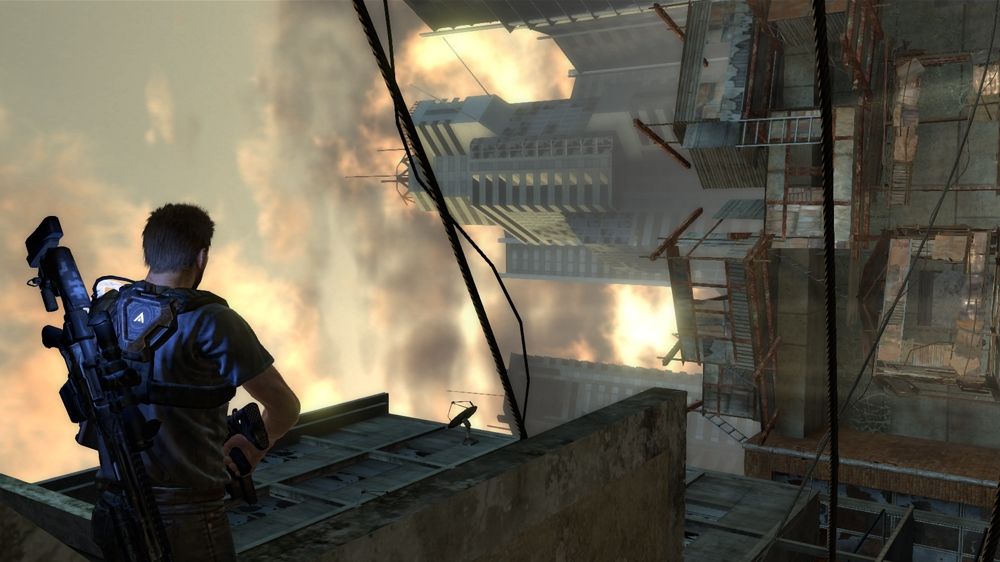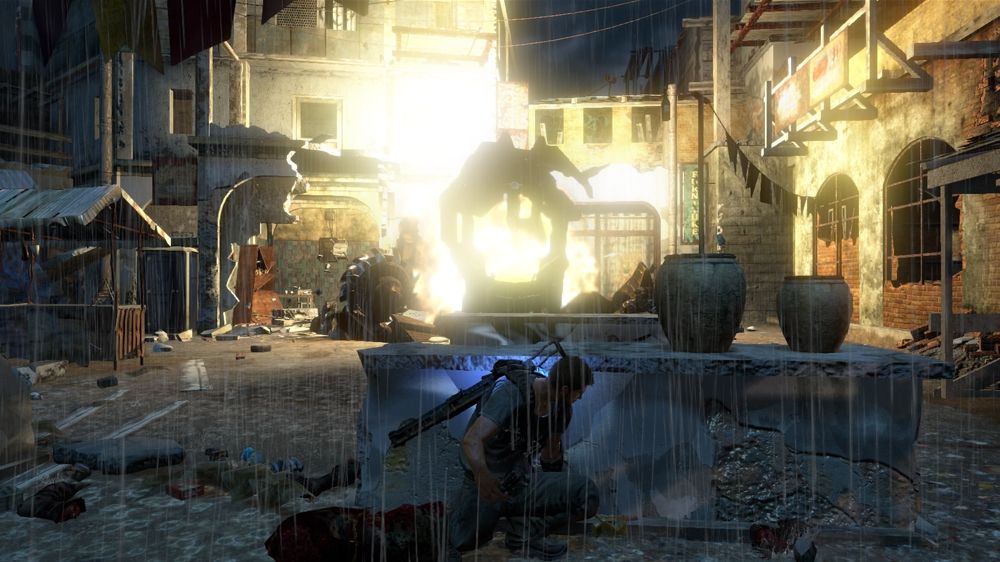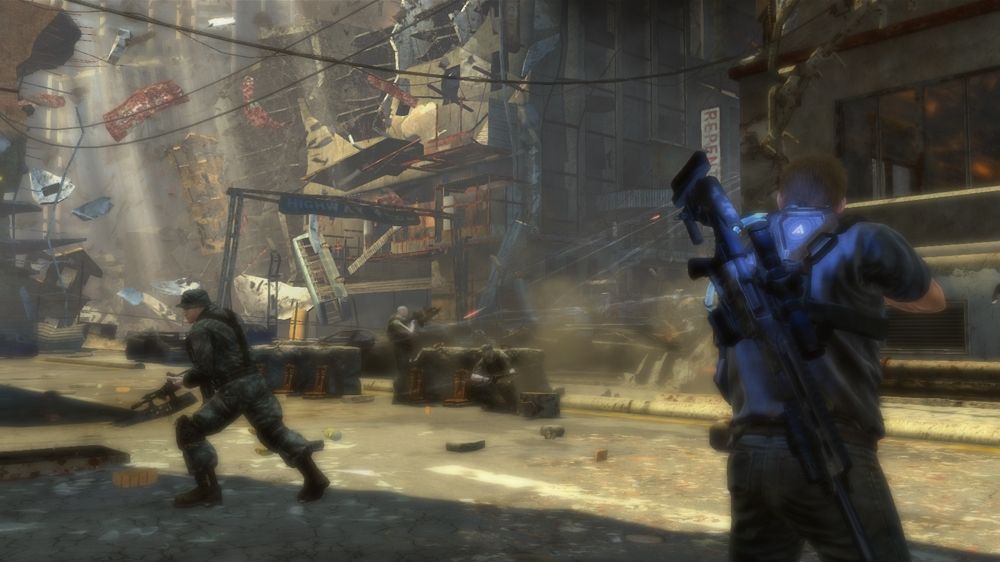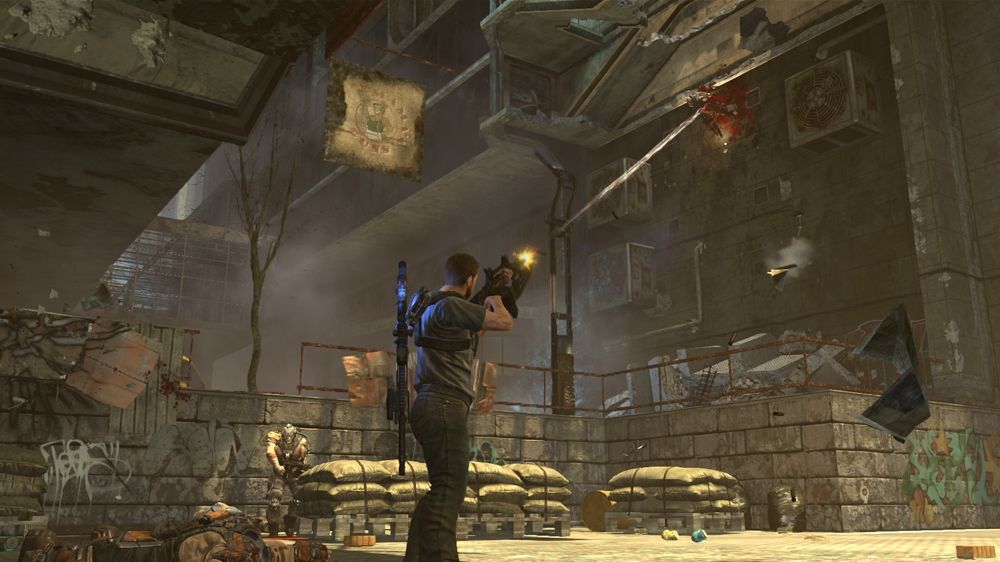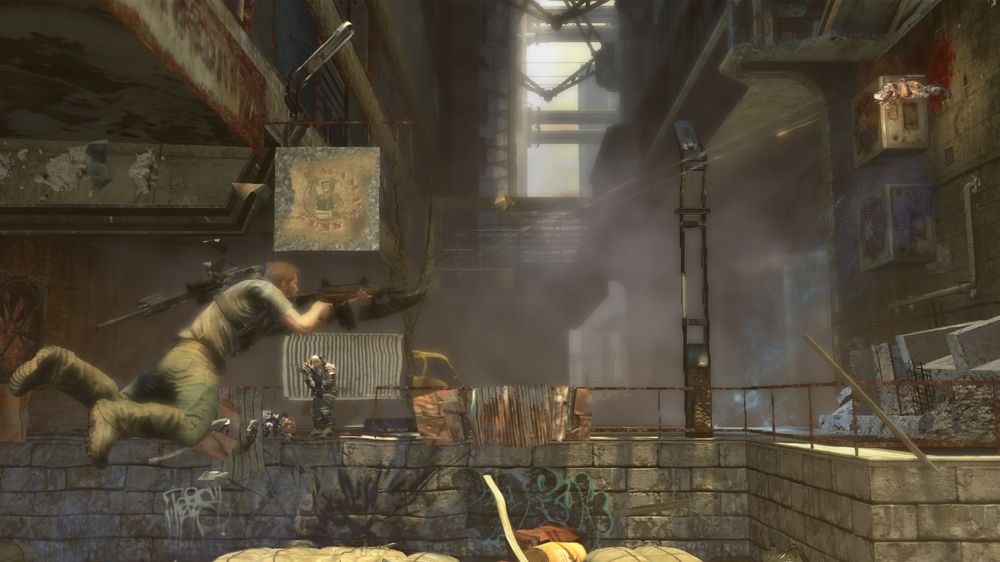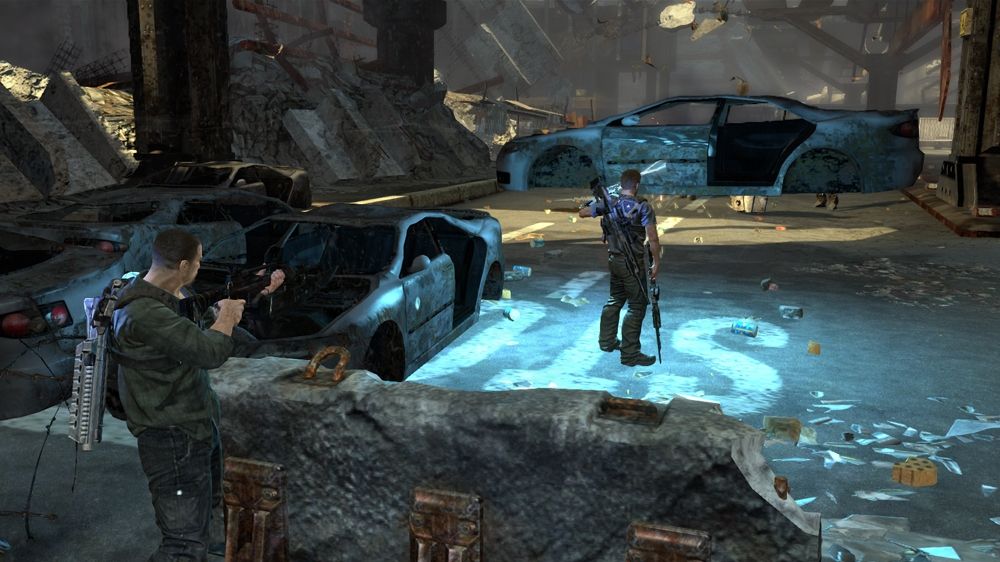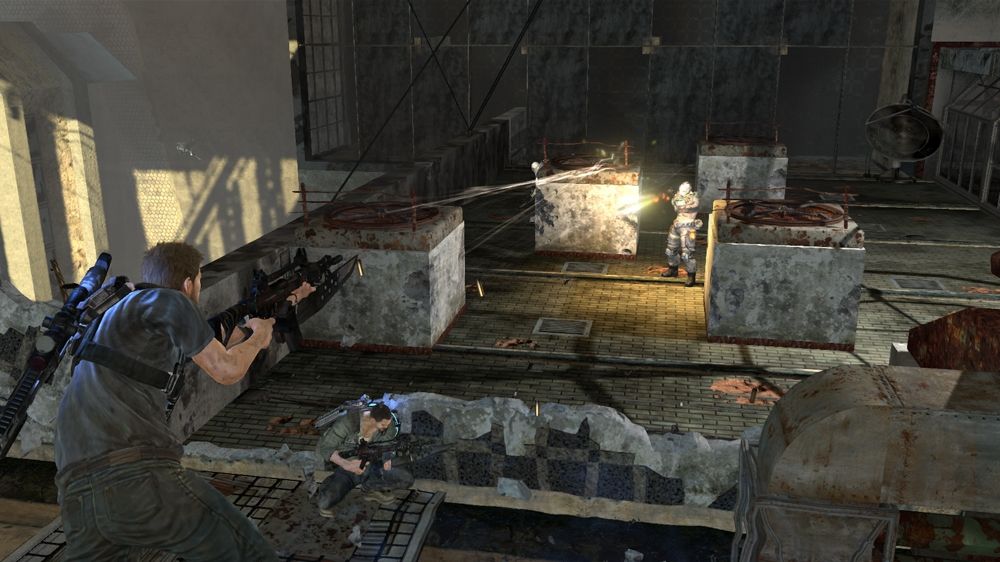Seeing a game go through a series of delays is nothing new and it happens for a very large variety of reasons. Sometimes the game just needs a little more polish or perhaps the original launch window was less than desirable for one reason or another. This move can have a large impact on the success and quality of a game and depending on how it's handled can be used to great effect.
Sometimes however these delays can have a negative impact on the game as it fades from public view and gets forgotten. Sometimes these games can create a very pleasant when they are finally released as it turns out all that extra time was used to great effect to create an even better experience.
Unfortunately Inversion is not one of these cases.
Inversion is for all intents and purposes a very traditional third person shooter as we've come to know them. All the staples of the genre are present from the ability to carry a limited number of your standard variety of weapons to a cover mechanic, fast-running ability that you can't shoot during and of course regenerating health. However Inversion does one thing very differently in the use of gravity of all things.
The story gets started in media res and things get very confusing right from the get go. Of course that's usually going to happen when you start a story near the end of it but somehow Inversion manages to make a bigger mess of this than normal and you're left scratching your head very early on. Things get even weirder when the game flashes backwards a little bit but still not quite to the beginning and lets you play a few small chunks of some time in the middle before going back to the beginning.
This is where things fall apart because when you find yourself at the start of the story the game is trying to pretend like everything is just another normal day yet we've already learned that some bad stuff is about to happen. We're dropped into the shoes of a cop named Davis Russel and his partner Leo Delgado who are on a patrol when things get crazy and an alien force attacks the city.
As I said an alien force invades and things start going crazy all over the city as gravity starts going crazy in seemingly random spurts around the city and the vaguely human looking monsters start shooting at people with their large guns which have gigantic blades attached to them for no logical reason. Thins don't go so great for our cop friends and while attempting to find Davis' family the two wind up getting captured and put into a slave labor camp by the enemy force.
Things jump forward a little bit and we learn that they've been using our heroes as mine workers forcing them to dig for something. Things aren't exactly clear as to what happened but somewhere along the way everybody seems to have learned that the aliens are called the Lutadore despite said aliens only speaking a few words of English.
After the initial flashbacks prior to the main story actually beginning the game spends a lot of time with you just walking around experiencing some exposition with very little shooting or actual gameplay, though this changes shortly. Continuing the acknowledgement of "for some reason" our heroes are given the Lutadore's special gravity manipulation devices and thrown into a mine and forced to do some work using them for a brief period of time.
After defeating the boss at the end of the mine more Lutadore appear and strip you of your weapons and the gravity devices and again we enter a long lull of just listening to these guys talk to other people.
I won't go too much more into the story but needless to say you eventually break out of the prison and steal some weapons as well as the gravity devices and set out to look for Davis' family again. Along the way you meet up with a resistance group who has been living in the conquered city fighting the Lutadores (these guys also know what they're called and it's still unexplained how this became public knowledge).
From here on out you go on a typical checkpoint chasing mission of advancing through different areas and completing a variety of objectives that help you along the way while shooting anything that gets in your way. The story is fairly serviceable without being either too bad or too memorable, falling squarely in the middle of something that does a decent job of explaining why you're shooting things.
Moving onto the gameplay we'll find a pretty similar outcome to how the story has been shaping up so far which unfortunately leaves a lot to be desired.
Things start off well enough in the actual control of your character which is pretty consistently decent in every aspect and while the actual aiming and use of the guns itself is fine there's something that just feels off about the shooting itself. It's hard to put it into words but things just feel really loose and just awkward. The controls are responsive and you'll always be doing exactly what you meant to but it just feels like there's something missing somewhere along the line.
The guns themselves come in the standard variety of a few similar assault rifles, a shotgun, a sniper rifle, etc. and they each definitely feel very different from one another and with the limited arsenal restriction we've come to expect in shooters these days you'll definitely be picking and choosing your favorites for each encounter, at the same time the weapons all feel very standard across the board. This isn't necessarily a bad thing but there's just nothing exciting about the weaponry here.
Instead all of the fun and excitement from the game comes from the unique mechanic that makes Inversion stand out from the other shooters on the market with the gravity manipulation.
Using the gravity device you stole from the Lutadore early on in the game you'll be able to manipulate the world around you in a number of interesting ways depending on what part of the story you're in. Early on this takes the form of light gravity manipulation with the ability to lower gravity in a certain area which affects enemies and objects in the environment alike. Later this ability gets upgraded and allows you to increase gravity and becomes more powerful giving you the ability to lift heavier objects like cars and throw them around.
From time to time the game will introduce some more extreme gravity manipulation into the world around you literally turning everything on the side. This will mostly take the form of changing which direction is "down" as you find yourself walking up the side of a building, sometimes attacking enemies that are walking on a different plane than you are. These areas are definitely the most interesting segments of the game and it's truly a shame that this doesn't get explored nearly as often as it should have.
Occasionally you'll actually find yourself floating in zero gravity at scripted times during the game and while still interesting these don't stand out nearly as much as the aforementioned parts. A lot of these areas will take the form of a navigation "puzzle" as you float from one object to the next to reach your destination though occasionally you will have to fight enemies during these moments.
All of the gravity manipulation mechanics are legitimately interesting and the game really could have benefited from experimenting more with this rather than the standard open encounters in normal environments. Instead they stick out as all too brief bright spots in an otherwise grey and uninteresting experience.
It should be noted that Inversion does feature a multiplayer component which also features the gravity mechanic which as in the main game saves it from being just another run of the mill third person shooter but the gripes with the campaign make the trip across to the online experience as well and with lackluster shooting the multiplayer falls extremely flat across the board featuring even less to boast about than the single player did.
The game is designed from the ground up to be a co-op experience however which is painfully obvious when you're playing the game by yourself. Your cop partner serves as the second player's point of view and as such is present throughout the entire campaign so the narrative fits around the structure should you decide to play with a friend.
Unfortunately this leads to a boring AI co-op partner when playing solo and although not very frustrating from a strictly gameplay point of view does come with the unnecessary addition of having to endure many co-op actions that exist for no other purpose than to remind you that this could be (or is) a co-op experience. There are far too many doors, ledges or other actions that seem to require two people to accomplish them than there should ever be in a game.
You will be spending a lot of time in this game waiting for the computer or a friend to come over and hold something for you while you very slowly go through it and then hold it for them to do the same.
Inversion isn't what I would necessarily call a bad game. The gravity manipulation stuff is handled extremely well with the only problem in this area being that it's under utilized. The rest of the game fails to accomplish anything meaningful and instead feels a lot like some other more well known third person shooters out there. This isn't a bad thing really but certainly doesn't do the game any favors.
Instead what we have here is a game that is squarely average in almost every single way. The campaign is as short as we've unfortunately come to accept as standard for a shooter these days and a few weeks down the line the multiplayer will be all but forgotten in a sea of bigger names, but Inversion does get some stuff right along the way and while I can't say I enjoyed the experience too much I would definitely like to see some of the mechanics from the game explored more in the future without skipping out on the rest of the game.
In the end Inversion is a game that is almost criminally mediocre. There was definitely potential here and from time to time that potential is touched on but the game is ultimately an underwhelming experience.

